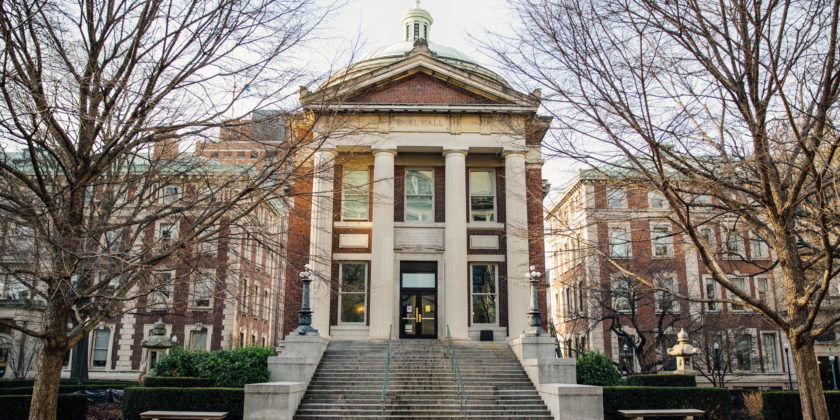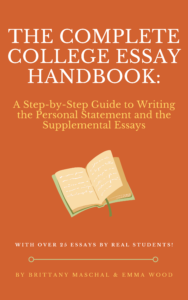
Focus on the next fours years, not the last.
The class of 2022 is resilient. They’ve weathered a pandemic, the confusion of test-optional, okay at best online schooling—the list goes on.
Great read in Charter by S. Mitra Kalita. “Bottom line: You’re going to be fine. Let’s focus on the next fours years, not the last!”
*Stay in the know! Subscribe*

Ask the Experts Day/Boarding Schools – A Conversation with Private School Admissions Directors
Please join Dina Glasofer Consulting for a conversation with a panel of admission directors from several selective day and boarding schools. A Conversation with Private School Admissions Directors will cover popular topics on the minds of parents considering private schools for their children.
This webinar will take place on Wednesday, April 20th at 7:00 p.m. (EST) and you must register below to receive a link for the event.
Please submit your questions for panelists through the registration link. You must register in advance to attend, and a Zoom link will be sent out prior to the webinar. Register here!
*Stay in the know! Subscribe*

Helping Teens Weather College Rejection
Rejection stinks! But it’s a normal part of life and college admissions. This short article is for parents. Hang in there. In six months from now, the college application process will be very far in your rearview!
*Stay in the know! Subscribe*

Get Involved with jGirls+ Magazine!

Now accepting applications for 2022-2023 teen editor and staff photographer positions!
The application is open to self-identifying Jewish girls, young women, and non-binary people across all backgrounds and across North America who will be in 10th-12th grades in the 2022-2023 academic year.
They actively encourage applicants who are diverse in their Jewish identification, sexual orientation, gender expression and identity, race, ethnicity, and abilities. If you’re unsure whether jGirls+ staff positions are open to your specific Jewish and/or gender identity, they encourage you to read the FAQs for those answers and more. Applications are open now through April 14th.
jGirls+ editorial board members and staff photographers make a difference in the world by:
- Building an online community of future Jewish leaders.
- Providing space for Jewish teenage girls, young women, and nonbinary teens to make their voices heard.
- Engaging in discussion across differences of background, opinion, and perspective.
*Stay in the know! Subscribe*

Executive and Professional MBA Forum for Women
Considering an Executive or Professional MBA? The Forté MBA Forum on March 24 is your opportunity to connect online with MBA admissions experts and network with other professional women.
The free online event for women will empower you with the information you need to take your career to the next level. Meet reps from some of the best business schools in the country — and abroad — all in one place. You won’t want to miss the opportunity to connect with Chicago Booth, Columbia Business School, The Wharton School, UC Berkeley Haas, Yale School of Management, and more.
Executive and Professional MBA Forum for Women
Thursday, March 24
5 – 7 pm ET
*Stay in the know! Subscribe*

Out Now on Amazon: The Complete College Essay Handbook!
Hi. If this were a podcast, this would be the part where we’d say, in our distinct voices: “I’m Brittany.” And then: “I’m Emma.” We’ve been working together to guide students through their college applications since 2016. After a few years, we realized our process was not reflected in any of the essay materials we found elsewhere, so we decided to write it down. What started as internal documents for our students eventually turned into a book. Since it is time to start thinking about essays, remember that…
The Complete College Essay Handbook is available on Amazon!

It’s a no-frills, practical guide that will give students the confidence and know-how they need to craft the best essays for every single school on their list—in less time and with less stress. The Complete College Essay Handbook walks students through:
- What makes an essay stand out, drawing on sample essays by real students to illustrate main points
- Brainstorming activities to find the best topics for the personal statement and supplemental essays
- How to write the two central components of every application essay: scene and reflection
- Editing and revision—including techniques to cut down or expand an essay to hit the word limit
- The four types of supplemental essays and how to decode the different essay prompts, using actual essay questions
- The strategy behind a well-rounded set of application essays
We are excited to get our expertise and years of experience into the hands of as many students as possible—especially now that it’s college application season!
We’d be so grateful if you shared a link to The Complete College Essay Handbook with friends and family, and if you decide to purchase it—thank you, and also consider leaving a review (verified Amazon reviews are huge for increasing exposure). If you have feedback—or just want to say hi—email us at brittemmaessays@gmail.com.
Thank you for your support!
Brittany & Emma

Free Event – Majors to Careers: Business
Exploring majors? Considering studying business? Join us to hear different viewpoints about studying and working in business – featuring current college students, career counselors and alumni in the field, as well as admissions professionals from Coalition schools. Come with your questions to this interactive panel discussion, and stay for a college fair to explore opportunities at a variety of Coalition schools.
Panel Discussion (7 to 7:45 p.m. ET)
Featuring admissions officers from Indiana University Bloomington, University of Michigan, and University of Notre Dame, along with student, alumni and career counselor perspectives.
College Fair (7:50 to 9 15 p.m. ET)
SESSION A. 7:50-8:30 p.m. ET
Room 1: Florida Southern College, Indiana University Bloomington, Skidmore College
Room 2: Southern Methodist University, University of Michigan, York College of Pennsylvania
Room 3: Maine Maritime Academy, Ramapo College of New Jersey, University of Notre Dame
Room 4: Johns Hopkins University, North Carolina State University at Raleigh, University of Dayton
Room 5: Hope College, Texas State University, Washington University in St. Louis
SESSION B. 8:35-9:15 p.m. ET
Room 1: Chatham University, St. Edward’s University, University at Buffalo
Room 2: Case Western Reserve University, Marquette University, University of Connecticut
Room 3: James Madison University, University of Massachusetts – Lowell
Room 4: Binghamton University, Lycoming College, University of South Carolina
Room 5: Lehigh University, UNC Charlotte, University of Vermont
Register
Consult the schedule above, then make your selections here.
Please note: Coalition schools may be in touch with you following the event based on the information you provide here.
Please check your email (bmaschal@gmail.com) for the links to join the opening panel as well as your selected fair sessions.
In the meantime:
- Invite a friend to join you at Coalition events! Share this link.

2022-2023 Common App Essay Prompts
No changes!
Below is the full set of essay prompts for 2022-2023. They have also retained the optional COVID-19 question within the Additional Information section.
- Some students have a background, identity, interest, or talent that is so meaningful they believe their application would be incomplete without it. If this sounds like you, then please share your story.
- The lessons we take from obstacles we encounter can be fundamental to later success. Recount a time when you faced a challenge, setback, or failure. How did it affect you, and what did you learn from the experience?
- Reflect on a time when you questioned or challenged a belief or idea. What prompted your thinking? What was the outcome?
- Reflect on something that someone has done for you that has made you happy or thankful in a surprising way. How has this gratitude affected or motivated you?
- Discuss an accomplishment, event, or realization that sparked a period of personal growth and a new understanding of yourself or others.
- Describe a topic, idea, or concept you find so engaging that it makes you lose all track of time. Why does it captivate you? What or who do you turn to when you want to learn more?
- Share an essay on any topic of your choice. It can be one you’ve already written, one that responds to a different prompt, or one of your own design.
Need essay advice? The Complete College Essay Handbook has you covered. If you decide to purchase it—thank you, and consider leaving a short review. If you leave a review and share it with us, we’ll send a copy to a school, library, or non-profit (that serves high school students!) of your choice. Email us at brittemmaessays@gmail.com to let us know where you want a copy sent.
*Stay in the know! Subscribe*

News of the Week
Will test-optional become the new normal? As more colleges embrace the practice for a few years—or permanently—the debate is changing.
So of course….the College Board Announces Streamlined, Digital SAT.
The Supreme Court agreed to hear an appeal of a decision that Harvard University’s use of affirmative action in college admissions is legal. The court will also hear an appeal of a ruling that the University of North Carolina at Chapel Hill’s use of affirmative action was legal.
*Stay in the know! Subscribe*
